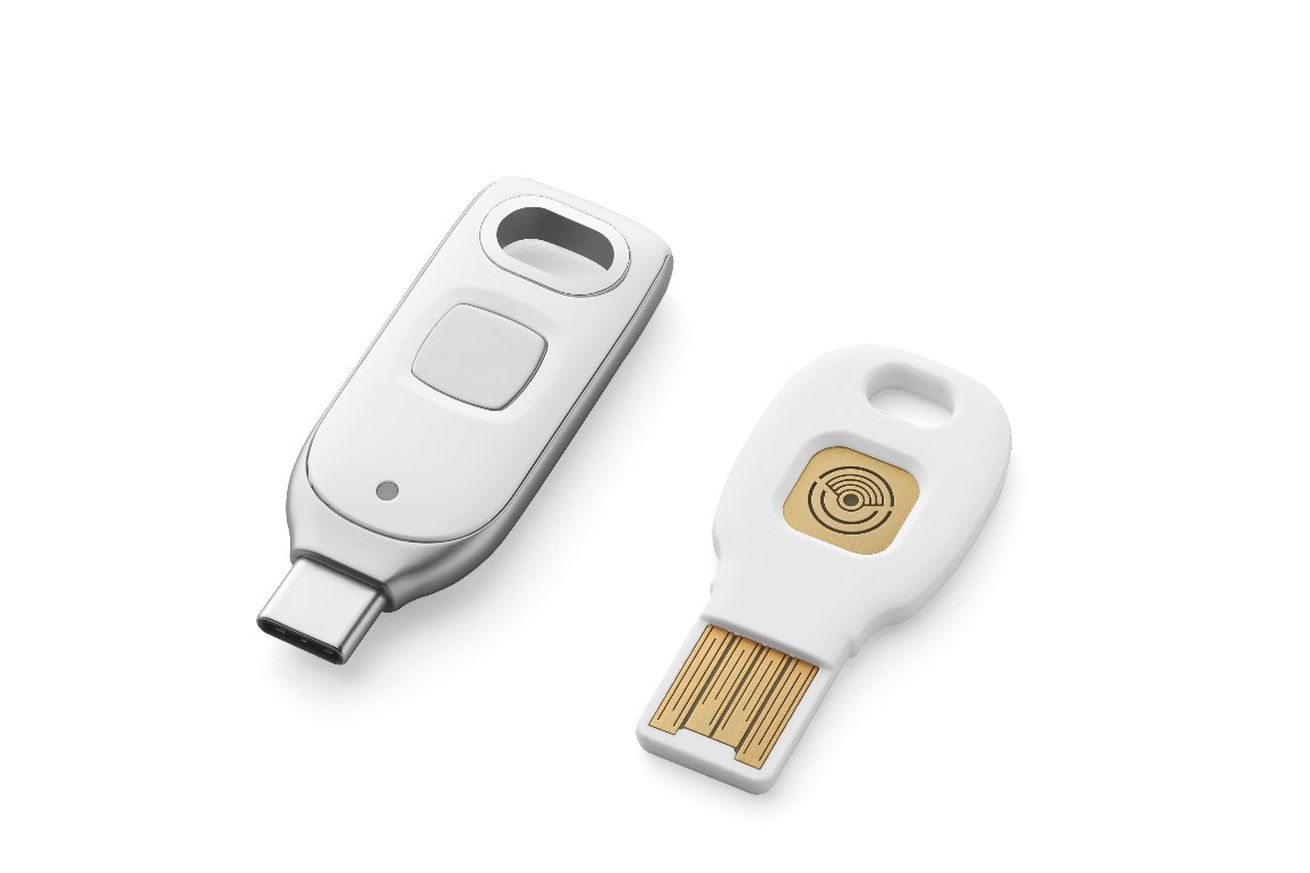Google Titan security keys (2023) | Image: Google
The latest iteration of Google’s Titan Security Key is here, ready to work alongside the new passwordless passkey technology that’s rolled out with support from Apple, Microsoft, Google, and many others. Two new versions of the key are available in the Google Store starting today with either a USB-C connection ($35) or USB-A connection ($30), and — like the previous versions released in 2021 — both also have NFC to connect wirelessly to phones and other mobile devices.
I’ve been using the USB-C version for a few days, and it works just as well as other keys I have, like the older Titan hardware and other FIDO2 keys from Yubico. Having NFC support on both versions is convenient so that you don’t have to choose, especially since when setting up keys, you’ll want to have at least two to maintain a backup.
Even with rapidly expanding support for passkeys, going passwordless with a security key has been easier than any other options I’ve tried. These are FIDO2 compatible, so they can serve as two-factor authentication security with existing services, and they have enough storage on board to hold more than 250 unique passkeys.
Other two-factor technologies like code generators, push notifications, and sending codes via email or text can add some protection against attackers stealing your password. But security keys go beyond that by using cryptography that verifies things on both ends: ensuring it’s a legit key and that you’re not giving up your login information to a fake website.
If you register these keys to unlock various online accounts (like your Google account) with a passkey, you can authenticate by connecting the key and verifying with a PIN that you set — no password required.
Disclaimer
We strive to uphold the highest ethical standards in all of our reporting and coverage. We StartupNews.fyi want to be transparent with our readers about any potential conflicts of interest that may arise in our work. It’s possible that some of the investors we feature may have connections to other businesses, including competitors or companies we write about. However, we want to assure our readers that this will not have any impact on the integrity or impartiality of our reporting. We are committed to delivering accurate, unbiased news and information to our audience, and we will continue to uphold our ethics and principles in all of our work. Thank you for your trust and support.



![[CITYPNG.COM]White Google Play PlayStore Logo – 1500×1500](https://startupnews.fyi/wp-content/uploads/2025/08/CITYPNG.COMWhite-Google-Play-PlayStore-Logo-1500x1500-1-630x630.png)